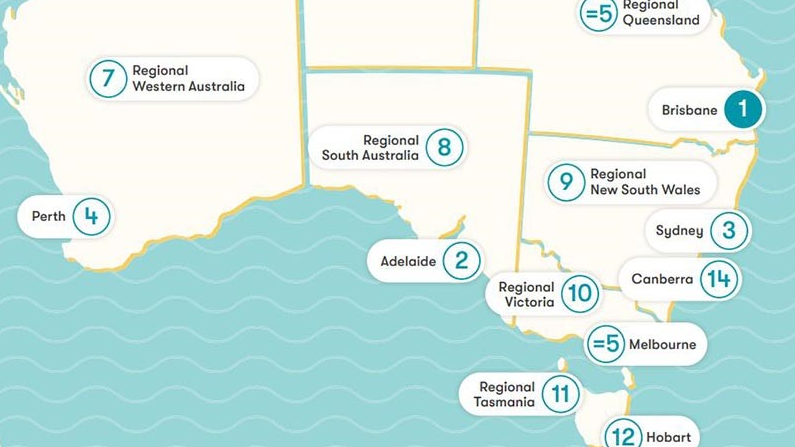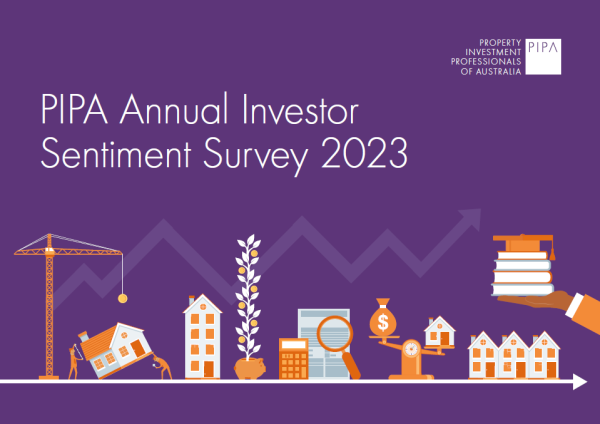South East Queensland remains a target for developers and lenders
Oct 2020Karen Millers
Categories
Location ReportsMedia releasesNational market updatesPersonal advisersPIPA AdviserPIPA Annual Investor Sentiment SurveysPIPA Member ProfilesPIPA video updatesPIPA webinarsPodcastsProperty advisersProperty newsLatest Articles
‘More chance of winning lotto’ than housing targets being met
PIPA Member Profile | Amanda Turner, Opulence Property
Sentiment and investment in residential property in Queensland remain promising, with the 2020 Property Investment Professionals of Australia (PIPA) Annual Investor Sentiment Survey finding two-thirds of property investors are still looking to capitalise on opportunities.
Of these respondents, thirty-six per cent believe SEQ and Brisbane offer the best investment prospects over the coming year, with the region perceived more positively than other major capital cities.
Tangible improvement in sentiment is supported by a 70% rise in national average loan issuance for residential land purchases compared to September 2019, strongly driven by the HomeBuilder scheme. This surge has been realised the most in Queensland with the largest increase across all states of 145%.
As construction sites in other states face stricter restrictions on workforce limits, causing delays and cost overruns, more national developers are realising the potential and opportunities in subdivisions and certain multi-residential projects in South East Queensland. Lenders too are optimistic and have been seeking new development partners who are active in this region.
Balmain Commercial’s Director Luke McKenzie says major lenders are mostly in favour of placing more of their capital into projects located SEQ, as opportunities in these regions are likely to deliver strong outcomes for developers over the next twelve months.
Lenders who participate in these regions are willing to offer construction loans, but are focused on asset classes and locations that have proved to be resilient during COVID-19 – these include land subdivisions, some multi-residential projects, non-discretionary and large format retail and industrial.
With fixed rates at historic lows and increased activity for non-stabilised financings, we are seeing property developers and investors remain optimistic by refinancing assets, acquiring development sites, and jumpstarting their projects. Despite there being higher levels of excess stock in metropolitan markets, lenders are willing to help developers recapitalise if they have a proven track record and can establish a strong strategy for the sell-down.
Many developers are also opting to hold on to some stock and rent these out both short and long-term. The demand for holiday rentals driven by Queenslanders are holidaying locally, has made this a viable strategy in certain circumstances.
Debt liquidity is in abundance with favourable terms available. The development site and construction loan segment of the market is generally being priced on par or slightly above pre-COVID rates so investors and developers should act and execute financing for their projects, while the markets remain active with comparatively low pricing.
Developers should recognise that despite observing some lenders pulling away from specific regions and subsegments, Balmain and other larger alternative financiers who have been through multiple economic cycles will continue to support their existing borrowers and willingly seek new opportunities to assist developers in navigating through these unique times.
With higher loan-to-value ratios and lower pre-sales requirements, alternative financiers and non-banks generally offer friendlier loan structures compared to traditional banks. As Balmain continues to provide structured, and tailored finance packages, it will remain as one of the most well-renowned performers in finance delivery for Brisbane and greater Queensland.
Brisbane Development, 18 October 2020
South East Queensland remains a target for developers and lenders




